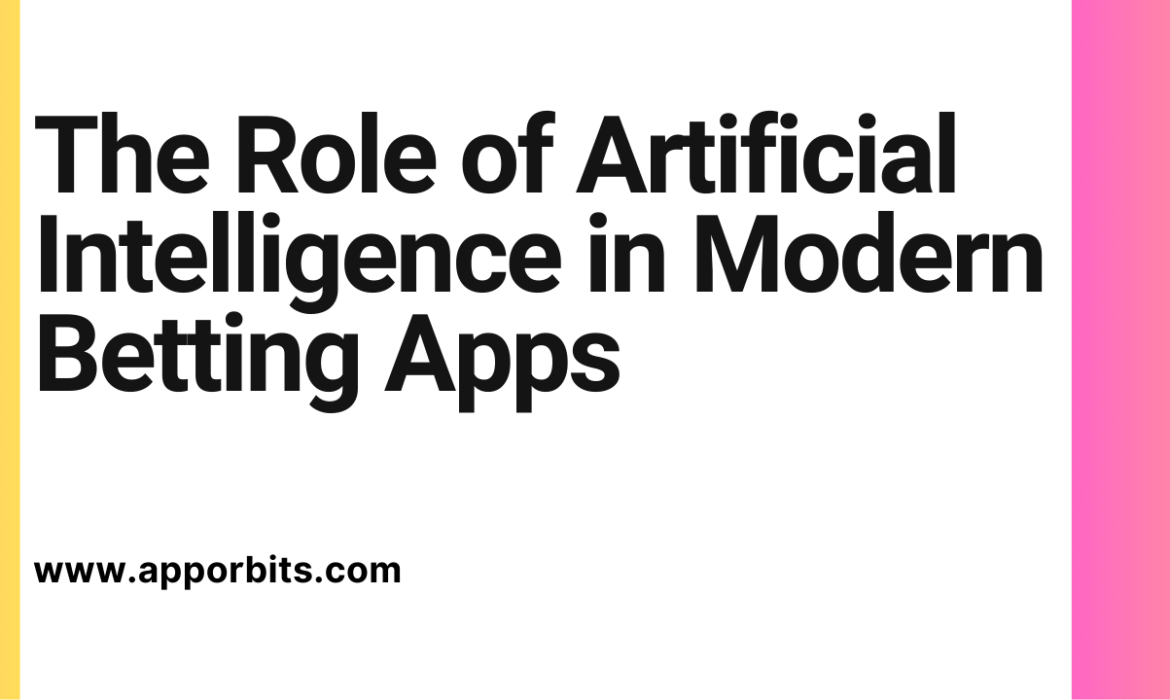
AI is revolutionizing gambling and betting apps in multiple ways, from fraud prevention to offering personalized customer experiences – making betting safer and more enjoyable for everyone involved.
AI algorithms analyze large volumes of data such as player stats, weather conditions and social media sentiment to produce reliable predictions and betting odds for sports. Furthermore, this dynamic system adapts its predictions as the game unfolds to provide reliable outcomes.
Personalized Recommendations
AI may conjure images of humanoid robots, but AI technology has since evolved into an indispensable tool for automating processes and data analysis. Examples of its application include digital assistants like Alexa or Siri; self-driving cars; generative AI tools (such as Open AI’s Chat GPT); as well as translating texts or audio into different languages – these all represent examples of artificial intelligence at work.
AI technology is being utilized by banks and financial services firms to identify potential fraud, process loan applications more quickly and efficiently, automate manually intensive tasks such as data processing and analytics more efficiently, as well as automate manually intensive processes like data entry or analysis. Some have taken to calling this form of AI augmented intelligence rather than synthetic intelligence in order to distinguish it from science fiction enthusiast’s visions of human-like capabilities still in their dreams.
Other subsets of AI include computer vision technology that enables machines to recognize images and video; natural language processing and generation, an important technology used in applications like text generation or speech synthesis; game-playing algorithms developed for complex strategic games like chess.
Real-Time Odds Adaptation
AI algorithms analyze vast datasets such as player stats, team performances, weather conditions and social media sentiment in order to predict outcomes. This data gives bettors insights they would otherwise miss when making smarter betting decisions.
These systems can also adjust odds or predictions in real-time as a game unfolds, improving accuracy and helping bettors stay ahead of the competition. In-play betting has become increasingly popular and offers fans an engaging, dynamic and engaging experience.
AI can significantly ease the workload for sports bookmakers by automating customer service and other operational tasks, helping reduce workload by automating customer service and other administrative duties. When integrating this technology into your platform, however, it’s essential to respect intellectual property rights; depending on which algorithms are used by your AI system it could potentially infringe third-party IP rights leading to legal disputes and customer churn. Therefore it is recommended to opt for closed AI models which provide user protection as well as detect fraudulent activities or problem gambling behaviour that could indicate fraudulent activities or problematic gambling behavior by users themselves.
Fraud Detection
Real-time fraud detection enables businesses to save both time and money by cutting the costs associated with manual, labor-intensive data analysis. Furthermore, this allows them to implement robust internal controls which will protect them against future fraudulent activity.
AI-powered chatbots such as ChatGPT, Google Bard and Microsoft Megatron-Turing NLG mark an exciting development in artificial intelligence; these chatbots can generate content based on prompts such as texts, images, videos or musical scores to produce interesting responses for their users.
AI can help automate repetitive tasks that would otherwise be laborious or impossible for humans to complete, eliminating human errors while remaining distraction-free. Machines don’t get sidetracked by other activities or the need for breaks like humans do – making this type of AI known as narrow AI distinct from more sophisticated forms such as general intelligence that can understand its own experiences and contexts and attain this level of intelligence or superintelligence – something narrow AI cannot yet achieve.
In-Play Betting
AI has had an immense effect on modern life. From Netflix recommendations and translation models, to self-driving cars and security systems for banking fraud detection – AI has truly revolutionised how we live our lives.
Artificial Intelligence can be defined simply as the process of teaching computers to act intelligently. This is accomplished using machine learning techniques which utilize structured data sets in order to learn from human feedback and algorithms alike how best to respond.
One of the most prevalent forms of AI is neural networks, which simulate how human minds work. They consist of layers of computational nodes known as perceptrons that work together to classify and analyze data; more nodes mean more sophisticated models. Generative models like variational autoencoders (VAEs) allow AIs to learn realistic images and speech for use in image recognition and natural language processing applications.


